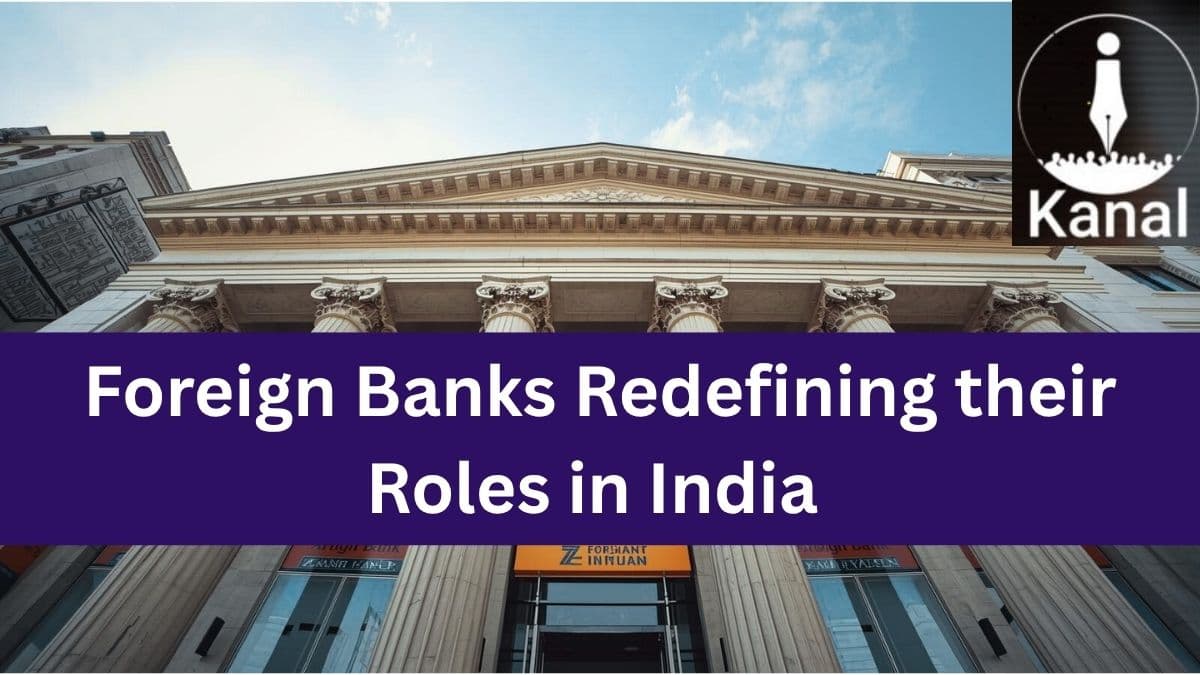The Changing Role of Foreign Banks in India
India’s banking landscape is shifting as foreign players move from opening branches to investing directly in Indian banks, reflecting a more selective yet open regulatory approach by the RBI.

Author: Sruthysh
Published: October 27, 2025
The role of foreign banks in India is going through a major change. While earlier they mostly came in through their own branches, today the focus is shifting towards foreign investors buying stakes in Indian banks instead. The Indian government and the Reserve Bank of India (RBI) are opening up the sector, but only in a selective and carefully controlled way;Mint reported.
From Branch Expansion to Selective Investment
In the past, foreign banks had a wider presence in India. For example, in March 2022, there were 44 foreign banks with 882 branches and 36 representative offices. But by March 2024, that number had dropped to 780 branches and 31 offices.
Their network has been shrinking, especially when compared with public and private Indian banks. In March 2025, foreign banks operated only 993 ATMs, while public sector banks had 133,000 ATMs and private banks had 71,117.
Foreign banks hold only a small part of India’s banking market around 4.92% of total deposits and 3.85% of total advances.
Big Foreign Investment Deals
Recently, several large investment deals have shown how the focus is now on foreign investors putting money into Indian banks, rather than running their own.
* Federal Bank Ltd partnered with Blackstone, the world’s largest alternative asset manager. Blackstone invested ₹6,197 crore through its affiliate Alpha 11 Topco XIII Pte Ltd, buying a 24.9% stake in IDFC First Bank.
Advertisement
* Around the same time, Warburg Pincus and Abu Dhabi Investment Authority (ADIA) invested ₹7,500 crore in IDFC First Bank through their subsidiaries, taking up stakes of 9.99% and 5.1% respectively. Warburg Pincus also gained a seat on the bank’s board.
These deals reflect how global investors see growing opportunities in Indian banking
Foreign Banks Changing Approach
At the same time, existing foreign banks are changing their strategy. Some are now seeking local subsidiaries to strengthen their position.
* In October, Emirates NBD Bank (ENBD) of Dubai signed an agreement with RBL Bank to buy a controlling stake worth ₹26,850 crore. This is the largest foreign direct investment in the Indian financial services sector so far.
* ENBD plans to raise its shareholding to 60%, starting with 26% and later increasing to 34%, subject to RBI and SEBI approval.
If RBI gives its final approval, ENBD will become a locally incorporated bank in India. At present, only DBS Bank India (from Singapore) and State Bank of Mauritius have such subsidiaries. DBS had earlier taken over Lakshmi Vilas Bank in 2020.
Mergers and Share Transfers
Other big global banks are also making moves:
* Japan’s Sumitomo Mitsui Banking Corporation (SMBC) recently bought a 22.42% stake in Yes Bank from SBI and LIC, which may increase to 24.99% after approval.
* These sales are expected to help Indian banks strengthen their balance sheets while giving foreign investors a foothold in the Indian market.
What This Means
The new approach signals a shift foreign banks no longer seek to expand by opening branches. Instead, they prefer to partner with or invest in Indian banks. This allows them to take part in India’s growth story without dealing with heavy local regulations that come with operating a branch network.
The RBI, meanwhile, remains cautious but open. It welcomes foreign investment but ensures strong regulation and scrutiny to protect financial stability.
Evolution
India’s banking landscape is changing quickly. While foreign banks once competed to open branches here, now they’re more interested in strategic partnerships and equity stakes. The RBI’s selective openness ensures that the system grows steadily, without losing control to foreign entities.
This balance between openness and regulation is shaping a new era of cooperation between Indian and global banks.
Advertisement
No comments yet.
